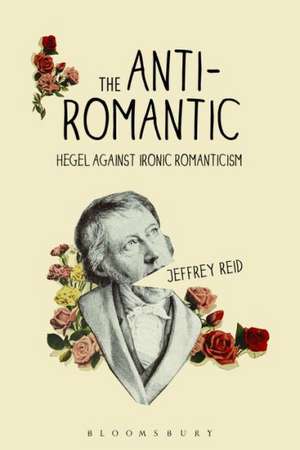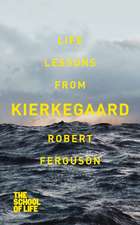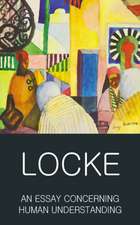The Anti-Romantic: Hegel Against Ironic Romanticism
Autor Jeffrey Reiden Limba Engleză Hardback – 30 iul 2014
| Toate formatele și edițiile | Preț | Express |
|---|---|---|
| Paperback (1) | 229.86 lei 6-8 săpt. | |
| Bloomsbury Publishing – 20 feb 2019 | 229.86 lei 6-8 săpt. | |
| Hardback (1) | 772.81 lei 6-8 săpt. | |
| Bloomsbury Publishing – 30 iul 2014 | 772.81 lei 6-8 săpt. |
Preț: 772.81 lei
Preț vechi: 898.61 lei
-14% Nou
Puncte Express: 1159
Preț estimativ în valută:
147.87€ • 154.39$ • 122.39£
147.87€ • 154.39$ • 122.39£
Carte tipărită la comandă
Livrare economică 04-18 aprilie
Preluare comenzi: 021 569.72.76
Specificații
ISBN-13: 9781472574817
ISBN-10: 1472574818
Pagini: 208
Dimensiuni: 156 x 234 x 13 mm
Greutate: 0.47 kg
Ediția:New.
Editura: Bloomsbury Publishing
Colecția Bloomsbury Academic
Locul publicării:London, United Kingdom
ISBN-10: 1472574818
Pagini: 208
Dimensiuni: 156 x 234 x 13 mm
Greutate: 0.47 kg
Ediția:New.
Editura: Bloomsbury Publishing
Colecția Bloomsbury Academic
Locul publicării:London, United Kingdom
Caracteristici
The book discovers an essential (and often overlooked) polemical aspect to Hegel's thought. This dimension casts new light on the relation between his philosophy and his time
Notă biografică
Jeffrey Reid is a Full Professor of Philosophy at the University of Ottawa, Canada.
Cuprins
Acknowledgements1. Friedrich SchlegelIntermezzo 1: Words and the Things2. NovalisIntermezzo 2: Irony and Barbarity3. SchleiermacherConclusionCoda 1: Galvanism and Excitability in Friedrich Schlegel's Theory of the FragmentCoda 2: Reflections on Novalis's Logological FragmentsNotesBibliographyIndex
Recenzii
[This book] is engaging, fresh, and insightful. It captures the spirit of Hegel's idealism, remarkably, on two registers. It contextualizes essential features that we might want to reclaim. It also makes clear aspects of Hegel's corpus that we might need to reject. The book opens paths of interpretation beyond itself, and that is a core component of an excellent book
Jeffrey Reid's work on Hegel's critical reaction to the Romantics offers an approach to this complicated question that is novel in several ways. He formulates it against the background of Hegel's own quest for a form of 'scientific discourse' adequate to his broad systematic aims, then treats Hegel's critique of Romanticism in terms of the key Romantic concept of irony, viewed as an alternative (though, for Hegel, inadequate) form of philosophical expression. Not only does his approach shed new light on Hegel's relation to his contemporaries, such as Fr. Schlegel, Novalis, and Schleiermacher, but it also has important implications for how one might respond to our own contemporary practitioners of 'postmodern irony.' It is a book both rich in historical detail about an important aspect of Hegel's thought that has often been neglected, and a work of philosophy in its own right that engages issues central to many contemporary discussions. Reid's book is required reading for anyone interested in Hegel and German Idealism, the Romantic movement, or the ironic mode of discourse as it is currently practiced.
The critical role of Novalis, Schlegel, and Schleiermacher in the development of Hegel's thought has largely been ignored in Hegel scholarship. Jeffrey Reid's The Anti-Romantic: Hegel Against Ironic Romanticism corrects that neglect. By establishing the importance of these figures for Hegel he makes a significant contribution to both Hegel research and research on German idealism. This fine book is also a welcome addition to the growing interest in the philosophical dimensions of German Romanticism.
The Anti-Romantic: Hegel against Ironic Romanticism offers a brilliant and highly original perspective on Hegel's idea of philosophy as scientific discourse. Hegel's idea is presented indirectly through his polemic against the Romantic forms of irony defended by Friedrich Schlegel, Novalis and Schleiermacher. On the basis of his broad historical research, Reid presents the intriguing thesis that Hegel's critique of irony may be viewed as a critique of post-modernity.
Jeffrey Reid's work on Hegel's critical reaction to the Romantics offers an approach to this complicated question that is novel in several ways. He formulates it against the background of Hegel's own quest for a form of 'scientific discourse' adequate to his broad systematic aims, then treats Hegel's critique of Romanticism in terms of the key Romantic concept of irony, viewed as an alternative (though, for Hegel, inadequate) form of philosophical expression. Not only does his approach shed new light on Hegel's relation to his contemporaries, such as Fr. Schlegel, Novalis, and Schleiermacher, but it also has important implications for how one might respond to our own contemporary practitioners of 'postmodern irony.' It is a book both rich in historical detail about an important aspect of Hegel's thought that has often been neglected, and a work of philosophy in its own right that engages issues central to many contemporary discussions. Reid's book is required reading for anyone interested in Hegel and German Idealism, the Romantic movement, or the ironic mode of discourse as it is currently practiced.
The critical role of Novalis, Schlegel, and Schleiermacher in the development of Hegel's thought has largely been ignored in Hegel scholarship. Jeffrey Reid's The Anti-Romantic: Hegel Against Ironic Romanticism corrects that neglect. By establishing the importance of these figures for Hegel he makes a significant contribution to both Hegel research and research on German idealism. This fine book is also a welcome addition to the growing interest in the philosophical dimensions of German Romanticism.
The Anti-Romantic: Hegel against Ironic Romanticism offers a brilliant and highly original perspective on Hegel's idea of philosophy as scientific discourse. Hegel's idea is presented indirectly through his polemic against the Romantic forms of irony defended by Friedrich Schlegel, Novalis and Schleiermacher. On the basis of his broad historical research, Reid presents the intriguing thesis that Hegel's critique of irony may be viewed as a critique of post-modernity.













